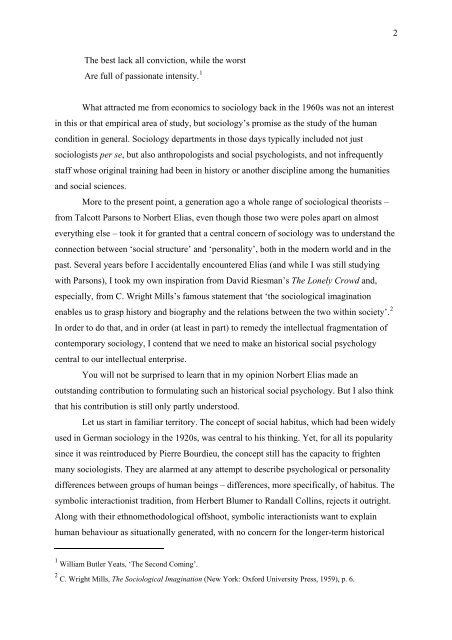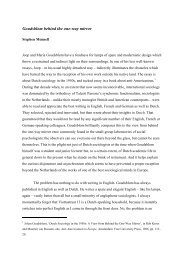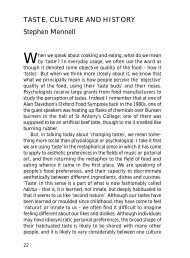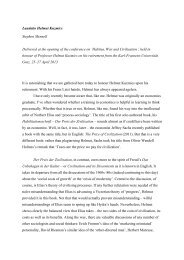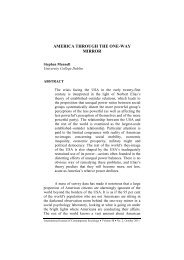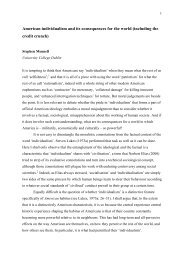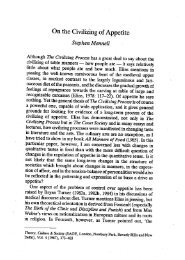paper - Stephen Mennell
paper - Stephen Mennell
paper - Stephen Mennell
You also want an ePaper? Increase the reach of your titles
YUMPU automatically turns print PDFs into web optimized ePapers that Google loves.
2<br />
The best lack all conviction, while the worst<br />
Are full of passionate intensity. 1<br />
What attracted me from economics to sociology back in the 1960s was not an interest<br />
in this or that empirical area of study, but sociology’s promise as the study of the human<br />
condition in general. Sociology departments in those days typically included not just<br />
sociologists per se, but also anthropologists and social psychologists, and not infrequently<br />
staff whose original training had been in history or another discipline among the humanities<br />
and social sciences.<br />
More to the present point, a generation ago a whole range of sociological theorists –<br />
from Talcott Parsons to Norbert Elias, even though those two were poles apart on almost<br />
everything else – took it for granted that a central concern of sociology was to understand the<br />
connection between ‘social structure’ and ‘personality’, both in the modern world and in the<br />
past. Several years before I accidentally encountered Elias (and while I was still studying<br />
with Parsons), I took my own inspiration from David Riesman’s The Lonely Crowd and,<br />
especially, from C. Wright Mills’s famous statement that ‘the sociological imagination<br />
enables us to grasp history and biography and the relations between the two within society’. 2<br />
In order to do that, and in order (at least in part) to remedy the intellectual fragmentation of<br />
contemporary sociology, I contend that we need to make an historical social psychology<br />
central to our intellectual enterprise.<br />
You will not be surprised to learn that in my opinion Norbert Elias made an<br />
outstanding contribution to formulating such an historical social psychology. But I also think<br />
that his contribution is still only partly understood.<br />
Let us start in familiar territory. The concept of social habitus, which had been widely<br />
used in German sociology in the 1920s, was central to his thinking. Yet, for all its popularity<br />
since it was reintroduced by Pierre Bourdieu, the concept still has the capacity to frighten<br />
many sociologists. They are alarmed at any attempt to describe psychological or personality<br />
differences between groups of human beings – differences, more specifically, of habitus. The<br />
symbolic interactionist tradition, from Herbert Blumer to Randall Collins, rejects it outright.<br />
Along with their ethnomethodological offshoot, symbolic interactionists want to explain<br />
human behaviour as situationally generated, with no concern for the longer-term historical<br />
1 William Butler Yeats, ‘The Second Coming’.<br />
2 C. Wright Mills, The Sociological Imagination (New York: Oxford University Press, 1959), p. 6.


